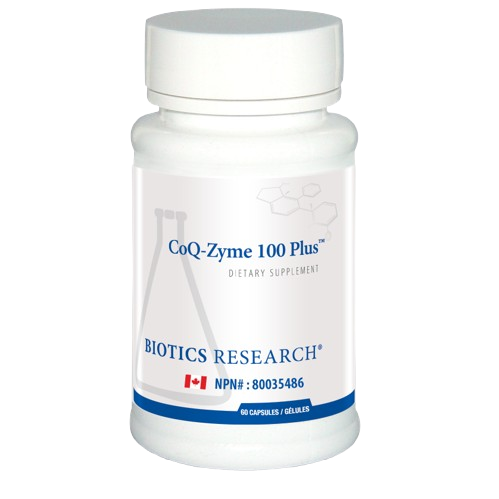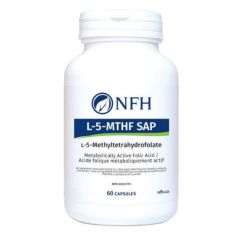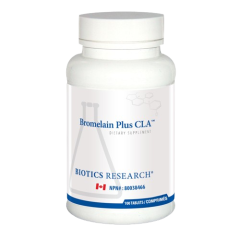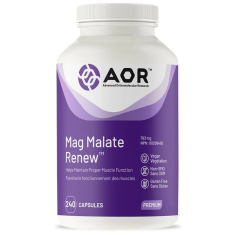May be necessary for one of the terminal steps in the electron transport chain in the process of energy (ATP) production). Thus, a component of mitochondria for the production of energy, CoQ-10 has potential to improve physiologic function in a number of conditions associated with impaired mitochondrial function. Consider for increased oxygenation need in cardiac stress or insufficiency, immune dysfunction, FM, CFS, headaches, high blood pressure, allergies, asthma, diabetes, ulcers, viral infections, periodontal disease, and multiple sclerosis (MS). Consider as an antioxidant, Cell membrane stabilization, Inhibition of inflammation by modulation of NF-kappaB, May reduce blood pressure in hypertensive patients as effectively as 1-2 drug combination treatment, Benefits pts with CHF or CRF, anti-allergy benefits. CoQ-10 deficiency is common in migraines and supplementation greatly reduces migraine attacks and Headaches 2007;47:73-80.
Thiamin (B1) (as cocarboxylase chloride) 1.5 mg
Riboflavin (B2) (as riboflavin-5-phosphate) 1.7 mg
Niacin (as niacin & niacinamide) 20 mg
Vitamin B6 (as pyridoxal-5-phosphate) 2 mg
Folate 400 mcg
Vitamin B12 (as methylcobalamin) 6 mcg
Biotin 300 mcg
Pantothenic acid (as calcium pantothenate) 10 mg
Coenzyme Q10 (Emulsified) 100 mg
One tablet daily as directed by your health care professional.






